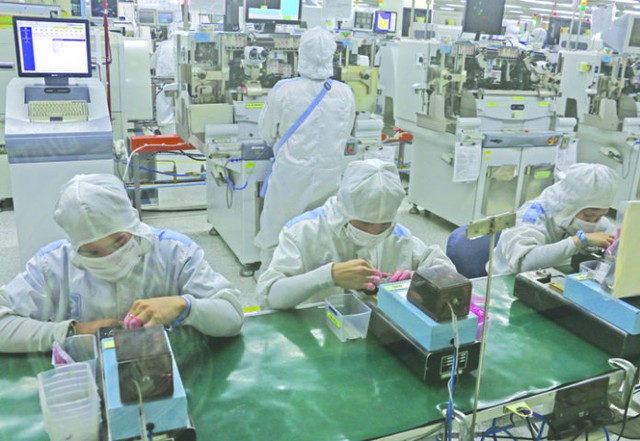HSBC: Viet Nam becomes most attractive destination for Taiwanese investors
VGP - Advanced manufacturing in Taiwan will be partly shifted to Viet Nam in the next few decades as Viet Nam emerged as a top destination for Taiwanese investment, according to HSBC experts.

Illustration photo
According to HSBC report, Viet Nam has witnessed a strong recovery with a GDP growth of 6.9 percent in the second quarter of 2024 and 6.42 percent in the first half of the year.
Building on the above achievements, the HSBC forecasted that Viet Nam's GDP growth is likely to accelerate to 6.5 percent for the whole year, becoming the fastest-growing economy in ASEAN. This would be a factor stimulating investments from Taiwan.
In 2023, Viet Nam absorbed US$2.2 billion in FDI from Taiwan, up four times compared to the previous year.
Taiwan is currently the fourth largest investor in Viet Nam with nearly 3,200 projects worth US$39.5 billion.
So far, Viet Nam has attracted many Taiwanese business giants such as Foxconn, Pegatron, Qisda, Compal, Quanta, and Wistron.
Most recently Taiwan's Tripod Technology decided to pour US$250 million southern Ba Ria-Vung Tau province.
Taiwan has become the fifth largest trade partner of Viet Nam with an annual two-way trade turnover of US$25 billion.
With the pivotal shift occurring from labor-intensive industries to skill/knowledge-intensive sectors, the Vietnamese Government is offering preferential policies in high-tech industries, aiming to attract more quality investments, thereby promisingly bringing more benefits to foreign investors, including those from Taiwan, she said.
Taiwan is well known as a global leader in electronics and semiconductors, with more than 70 percent of the market share for high-end chips. Its companies make up more than 80 percent of the world’s PCs and 90 percent of its servers.
Meanwhile, Viet Nam owns a semiconductor industry which is anticipated to be valued between US$20 - 30 billion by 2030, with the ambition to become the key player in the global semiconductor industry.
“The country has started to realize this aspiration by issuing policies focusing on high-quality FDI attraction and training enhancement. It boasts many advantages such as an abundance of young and skillful workers, an advantageous geographic location, a growing consumption market, competitive operational cost, and above all, a wide range of FTAs with diverse countries and territories,” Ms. Daphne Lee, Head of Commercial Banking at HSBC Taiwan, said./.
